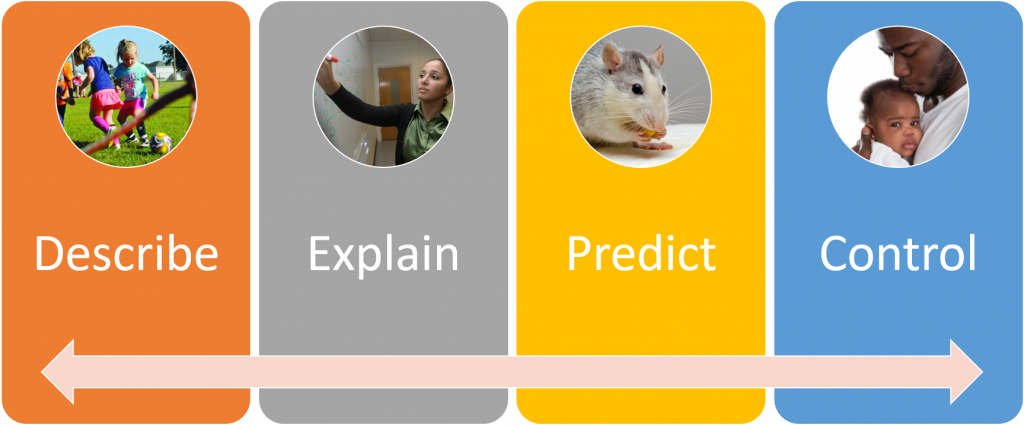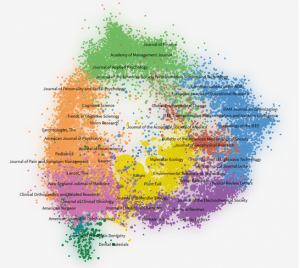Introduction to Psychology
Before we begin talking about culture and psychology, it is important to have a basic understanding of the field of psychology. Broadly speaking, psychology is the science of behavior and mind, including conscious and unconscious phenomena, as well as feeling and thought. Psychologists, practitioners or researchers in the field, explore the role that cognitive processes (thinking) has on individual and social behavior. Psychologists also explore the physiological and biological processes (e.g., neurotransmitters, brain, and nervous system) that underlie the thinking and behavior of individuals.
There are four main goals of psychology:
Describe
Psychologists describe the behavior of humans and other animals in order to improve our understanding of the behavior and get a sense of what can be considered normal and abnormal. Psychological researchers use many different methods to help describe behavior including naturalistic observation, case studies, and surveys. After describing behavior, it is easier for psychologists to understand and explain the behavior.
Explain
This goal involves determining the causes of behavior. Psychologists try to understand why a person acts or reacts in a certain way and then they try to identify if there are other factors that may produce the behavior (e.g., something that happens before or after a behavior). Using experimental designs, psychologists establish theories which will help explain the same behavior in different situations and contexts.
Predict
The third goal of psychology is to predict what behavior will come next, how a person will behave or when will the behavior happen in the future. Predicting behavior is hard, unless the behavior has already been studied which is why describing and explaining behavior must happen first. A psychologist may be able to predict a behavior by looking for a pattern using past instances or examples of that behavior. Predicting behaviors is essential for psychologists if they want to change or modify harmful or dysfunctional behaviors or to promote or encourage positive or prosocial behaviors among individuals.
Control
Finally, and perhaps most importantly, psychology strives to change, influence, or control behavior to make positive and lasting changes in people’s lives. It is important to note that if a psychologist tries to influence, shape, modify or control someone’s behavior without asking permission or getting consent it is considered unethical. As noted earlier, the ultimate goal of psychology is to benefit individuals and society but we do this by respecting the rights of others.

Psychology has been described as a “hub science” which means that medicine tends to draw upon psychological research mainly through the fields of neurology and psychiatry. Social sciences commonly draw directly from sub-disciplines within psychology like social psychology and developmental psychology. The field of psychology is about understanding and solving problems in several areas of human activity and as a discipline psychology ultimately aims to benefit society.

